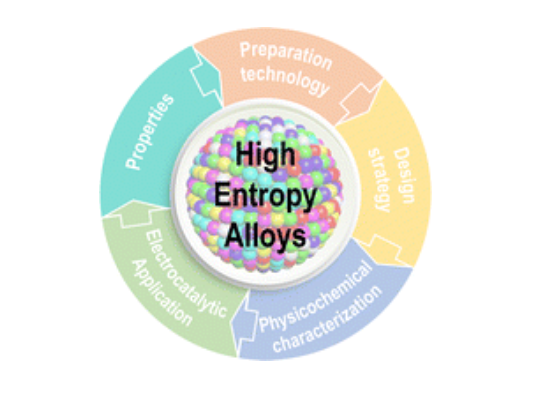
论文题目:High-entropy alloys in electrocatalysis: from fundamentals to applications
论文作者:Jin-Tao Ren, Lei Chen, Hao-Yu Wang, and Zhong-Yong Yuan*
发表期刊:Chem. Soc. Rev., 2023, Advance Article

Abstract
High-entropy alloys (HEAs) comprising five or more elements in near-equiatomic proportions have attracted ever increasing attention for their distinctive properties, such as exceptional strength, corrosion resistance, high hardness, and excellent ductility. The presence of multiple adjacent elements in HEAs provides unique opportunities for novel and adaptable active sites. By carefully selecting the element configuration and composition, these active sites can be optimized for specific purposes. Recently, HEAs have been shown to exhibit remarkable performance in electrocatalytic reactions. Further activity improvement of HEAs is necessary to determine their active sites, investigate the interactions between constituent elements, and understand the reaction mechanisms. Accordingly, a comprehensive review is imperative to capture the advancements in this burgeoning field. In this review, we provide a detailed account of the recent advances in synthetic methods, design principles, and characterization technologies for HEA-based electrocatalysts. Moreover, we discuss the diverse applications of HEAs in electrocatalytic energy conversion reactions, including the hydrogen evolution reaction, hydrogen oxidation reaction, oxygen reduction reaction, oxygen evolution reaction, carbon dioxide reduction reaction, nitrogen reduction reaction, and alcohol oxidation reaction. By comprehensively covering these topics, we aim to elucidate the intricacies of active sites, constituent element interactions, and reaction mechanisms associated with HEAs. Finally, we underscore the imminent challenges and emphasize the significance of both experimental and theoretical perspectives, as well as the potential applications of HEAs in catalysis. We anticipate that this review will encourage further exploration and development of HEAs in electrochemistry-related applications.
